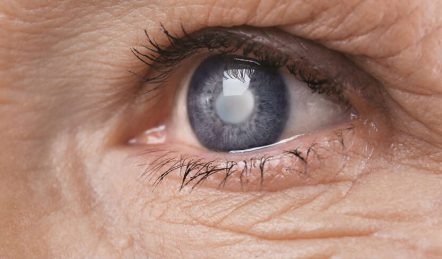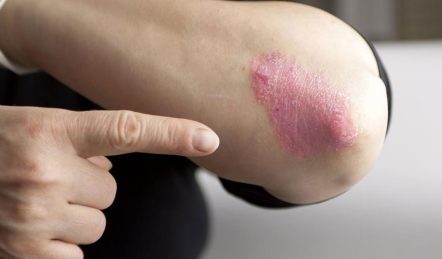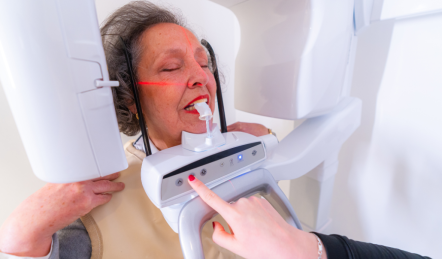How to Prevent Psoriasis Outbreaks Naturally
Psoriasis is a skin condition or disease that creates red, itchy, scaly spots, most frequently on the knees, elbows, trunk, and scalp. Psoriasis is a prevalent, long-term condition with no known treatment. It flares up every few weeks or months, then subsides or goes into remission. It is a cycle.
Psoriasis may be a painful and alienating experience for those who suffer from it. As a result, most people feel self-conscious about dealing with the itchy, reddish, and scaly spots. However, while the immune system is at the root of the disease, there are ways to minimize the severity and frequency of flare-ups by improving our behaviors and lifestyle.
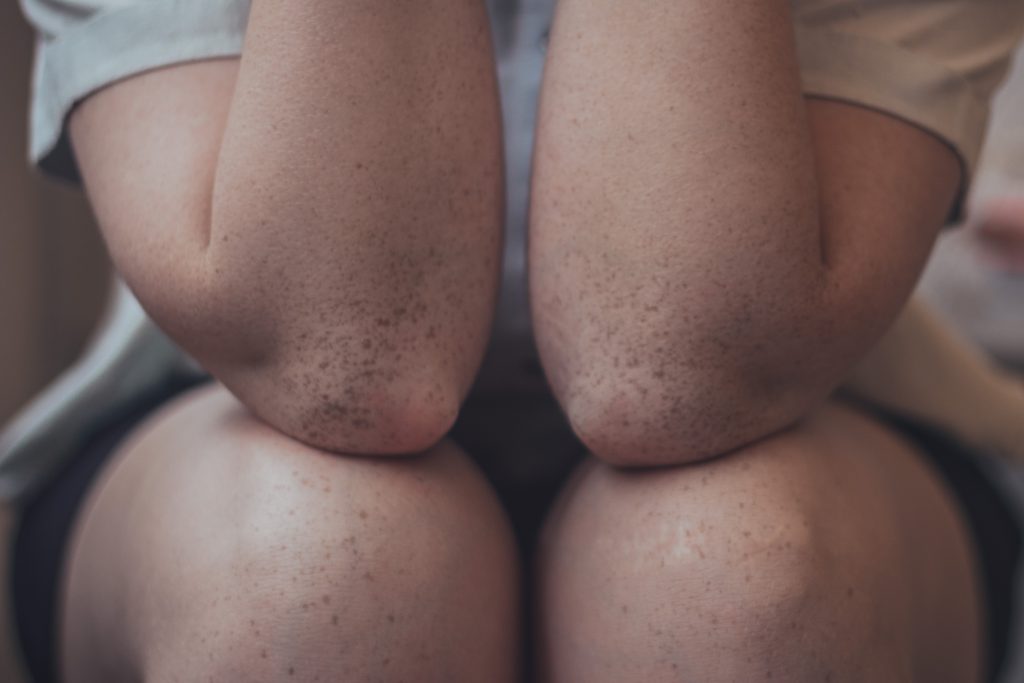
What Are the Symptoms of Psoriasis?
The indications and symptoms of psoriasis differ from one individual to another. The following are some of the most common indications and symptoms:
- Red patches of skin covered with thick, silvery scales
- Small scaling spots (commonly seen in children)
- Dry, cracked skin that may bleed or itch
- Soreness, itchiness, or rashes
- Thicker nails, pitted or ridged.
- Swelling and stiffness in the joints
Depending on the severity, psoriasis patches can range from a few flakes of dandruff-like scaling to widespread eruptions. The lower back, elbows, knees, thighs, soles, scalp, face, and palms are usually afflicted. It’s common for psoriasis to go through cycles, with flare-ups lasting for a few weeks or months, followed by periods of remission.¹
Things That Trigger Psoriasis Outbreak
Psoriasis patients may recognize certain habits or actions that cause flare-ups. Here are some of the most frequent psoriasis triggers to help you prevent a flare-up.
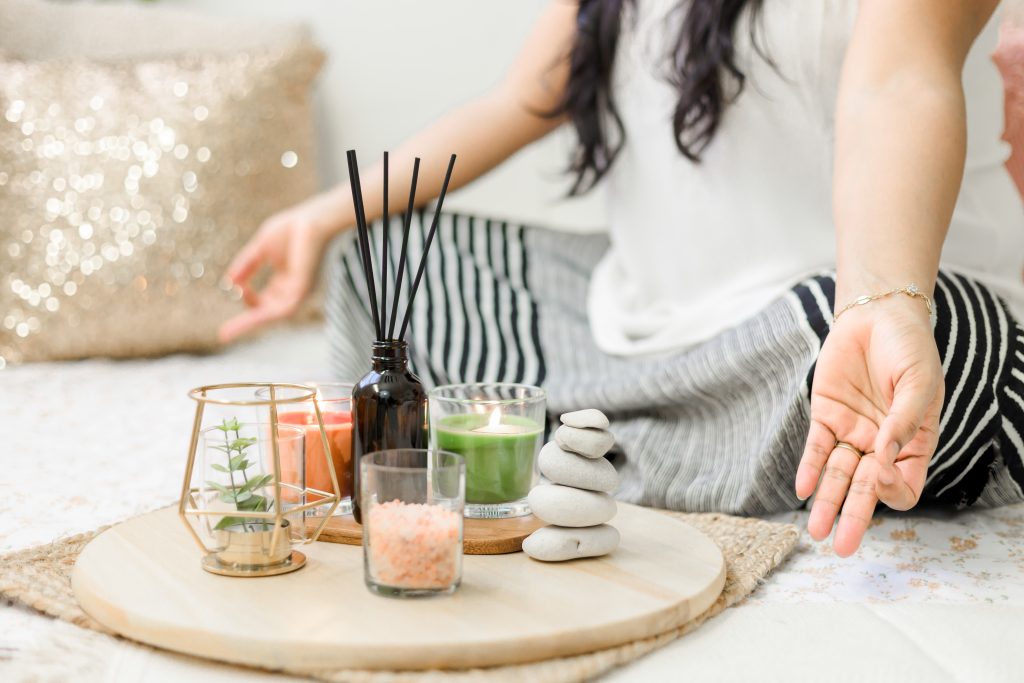
1. Stress
Stress is one of the most prevalent causes of psoriasis. A psoriasis flare, on the other hand, can be stressful. It may feel like a never-ending cycle. Persons with psoriasis need to keep a calm demeanor because their immune systems are already overactive. Stress management and relaxation techniques, on the other hand, may assist in avoiding stress from affecting psoriasis.²
2. Weather
A flare might be sparked by bad weather. For example, psoriasis flare-ups are common in the winter due to a lack of sunlight, humidity, and dry indoor air. Nevertheless, natural sunlight and greater humidity, and warm temperatures can help psoriasis.
3. Injury to Skin
Those who have had their skin wounded may get psoriasis there. It is due to the Koebner phenomenon, which argues that a psoriasis flare can be triggered by scratches, sunburns, insect bites, and injections.
4. Illness
Psoriasis can be triggered by anything that affects the immune system. As a result, an ear infection, bronchitis, tonsillitis, or respiratory infection may cause a flare-up. In addition, Streptococcus infection has been linked to the development of guttate psoriasis in children.²
7 Natural Remedies for Psoriasis
Psoriasis is quite common, so you’re not alone if you have it. Nearly 3% of the world’s population suffers from psoriasis, according to the International Federation of Psoriasis Associations (IFPA). That’s a population of more than 125 million people.³ Unfortunately, psoriasis has no cure. Therefore, the best approach to properly manage your symptoms is to consult a doctor who can prescribe drugs and other possible treatments to minimize psoriatic skin redness, reduce inflammation, and relieve pain and itching.
In addition, a variety of natural treatments can assist alleviate symptoms while you’re searching for a more comprehensive approach to healing.
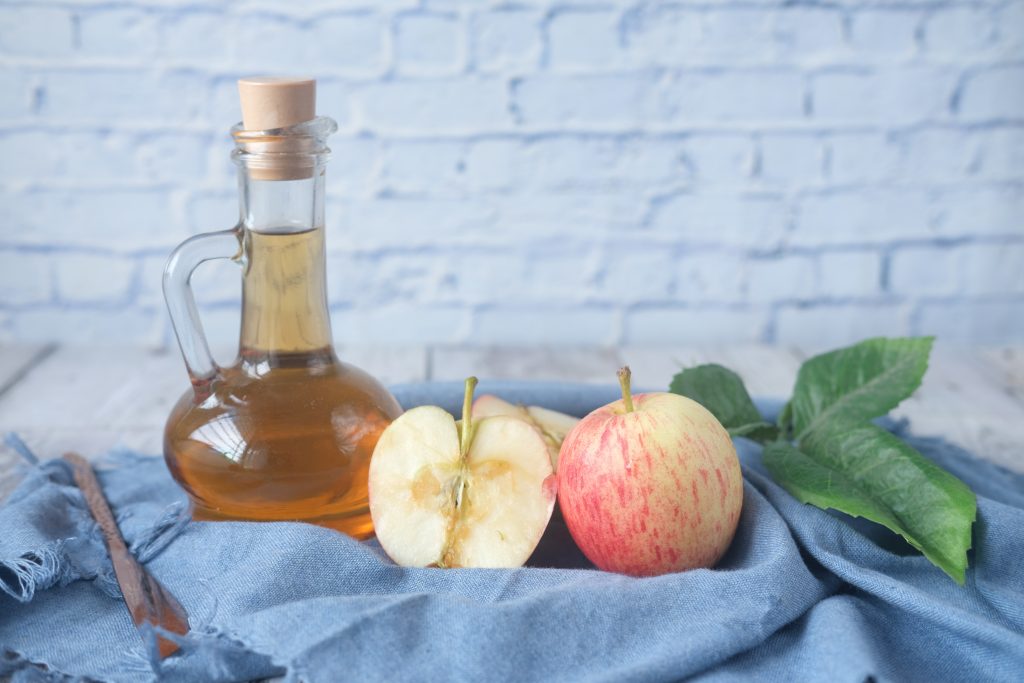
1. Apple Cider Vinegar
Apple cider vinegar is a great remedy for scalp psoriasis, so keep some in your kitchen. You’ll see great outcomes from this therapy in less than one month, which is rather affordable. There are a few different methods to apply it. If you prefer, you may apply it straight to the scalp and then completely rinse it away when it’s dry. Diluting it with water in equal amounts will help alleviate any burning sensations. If your skin is already damaged, you should steer clear of this treatment method.
2. Tea Tree Oil
Due to the antibacterial properties, it contains, tea tree oil might potentially be an excellent natural remedy. However, this hasn’t been proven clinically. Therefore, it would be best to opt for a shampoo that incorporates this oil for those who suffer from scalp psoriasis. Also, perform a skin patch test before using the product in large quantities for your safety.
3. Turmeric
Turmeric has several health benefits due to its antioxidant and anti-inflammatory properties, making it a popular herbal supplement. Psoriasis patients might benefit from using this medication. You may either use the herb in your cuisine or take it as a nutritional supplement.
4. Nature-Based Creams
Naturally produced creams made from various plants and herbs effectively treat mild to moderate psoriatic skin conditions. Aloe cream is one option that can help with both redness and scaling. Choose one with 0.5 percent aloe and apply it to the afflicted area several times each day.
5. Salts
Those who suffer from psoriasis can add salts such as Epsom or the Dead Sea to warm bathwater. Psoriasis patients benefit from soaking in this combination for a minimum of 15 minutes, which soothes irritated skin and aids in the removal of scaly skin.
6. Aloe Vera
One of nature’s most beneficial plants is aloe vera. As it turns out, the large, thick leaves are a superb skin-soothing ingredient. Besides relieving itching, it helps keep skin moisturized, preventing flaking and bleeding.
7. Oats
In addition to being a great breakfast meal, oats are also incredibly beneficial to the skin. For example, adding a handful of finely crushed oats to a warm bath will soothe an itchy, irritated flare-up. Likewise, adding oatmeal to the skin will help reduce inflammation and alleviate irritation.
The Bottom line
Psoriasis may be quite unpleasant, and going out in public when it is particularly bad can be humiliating. Reduce breakouts and flare-ups quickly by learning what works for your body.
Natural treatments for psoriasis are generally safe. A wide range of treatment options are available, and each patient’s response is unique. The most important thing is to inform your doctor what you’re doing. Perhaps they can offer advice based on what’s worked for other patients in the past.
References:
¹Psoriasis – Symptoms and causes – Mayo Clinic
²5 Common Triggers of Psoriasis – Future of Personal Health
³Facts and Statistics About Psoriasis




